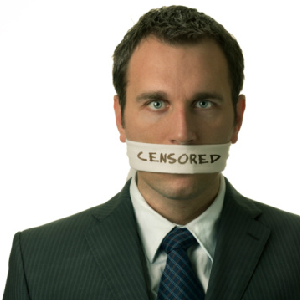Obama Administration Issues New Order To Keep Americans In The Dark On Government Spying

THINKSTOCK
Government transparency advocates have denounced a new Barack Obama Administration directive that forbids U.S. intelligence workers from talking to members of the press without permission from superiors.
“IC employees … must obtain authorization for contacts with the media” if sensitive topics are on the table and “must also report … unplanned or unintentional contact with the media on covered matters,” the directive says.
The directive stems from suggestions made by National Intelligence Director James Clapper last month in an effort “to mitigate risks of unauthorized disclosures of intelligence-related matters” like the Edward Snowden leaks that sparked public outrage.
The rule does not distinguish between classified and unclassified government matters but encourages “appropriate” interaction with media.
According to the Project on Government Secrecy’s Steven Aftergood, this puts U.S. intelligence workers in danger of being penalized under an overly broad directive.
He wrote in a recent blog post:
The new Directive creates an anomalous situation in which routine interactions that are permissible between an intelligence employee and an ordinary member of the public are now to be prohibited if that member of the public qualifies as “media.”So under most circumstances, an intelligence community employee is at liberty to discuss unclassified “intelligence-related information” with his or her next-door neighbor. But if the neighbor happened to be a member of the media, then the contact would be prohibited altogether without prior authorization.Meanwhile, the Directive defines membership in “the media” expansively. It is not necessary to be a credentialed reporter for an established news organization. It is sufficient to be “any person… engaged in the collection, production, or dissemination to the public of information in any form related to topics of national security….”
The consequences are hefty for U.S. intelligence workers who run afoul of the directive, ranging from revocation of security clearance and job termination to jail time.
According to Aftergood, the directive is a boldfaced government effort to ensure that the only news Americans get about the Nation’s surveillance and intelligence efforts has been pre-approved by top officials.
“[T]here is no particular reason to think that routine interactions between intelligence agency employees and reporters — especially on unclassified matters — pose any kind of threat to national security, or that limiting them will offer any benefit,” he wrote. “However, the new policy is likely to be effective in reducing the quality, independence and critical content of intelligence-related information that is available to the press and the public.”
The directive is just the latest in a series of Obama Administration efforts to clamp down on the amount of information Americans can access about the government’s actions.
In 2011, on the heels of then Pfc. Bradley Manning’s military intelligence leaks to Wikileaks, the President created the Federal Insider Threat Program.
McClatchy described the program thusly last summer:
President Barack Obama’s unprecedented initiative, known as the Insider Threat Program, is sweeping in its reach. It has received scant public attention even though it extends beyond the U.S. national security bureaucracies to most federal departments and agencies nationwide, including the Peace Corps, the Social Security Administration and the Education and Agriculture departments. It emphasizes leaks of classified material, but catchall definitions of “insider threat” give agencies latitude to pursue and penalize a range of other conduct.
Though the latest directive expands Insider Threat, intelligence officials claim that Americans needn’t worry that the efforts will allow the Nation’s spy community to operate with zero oversight or accountability. The new rule declares that the intelligence community “has multiple avenues for its employees to report activities perceived to be unlawful.”
No comments:
Post a Comment
Thanks for commenting. Your comments are needed for helping to improve the discussion.